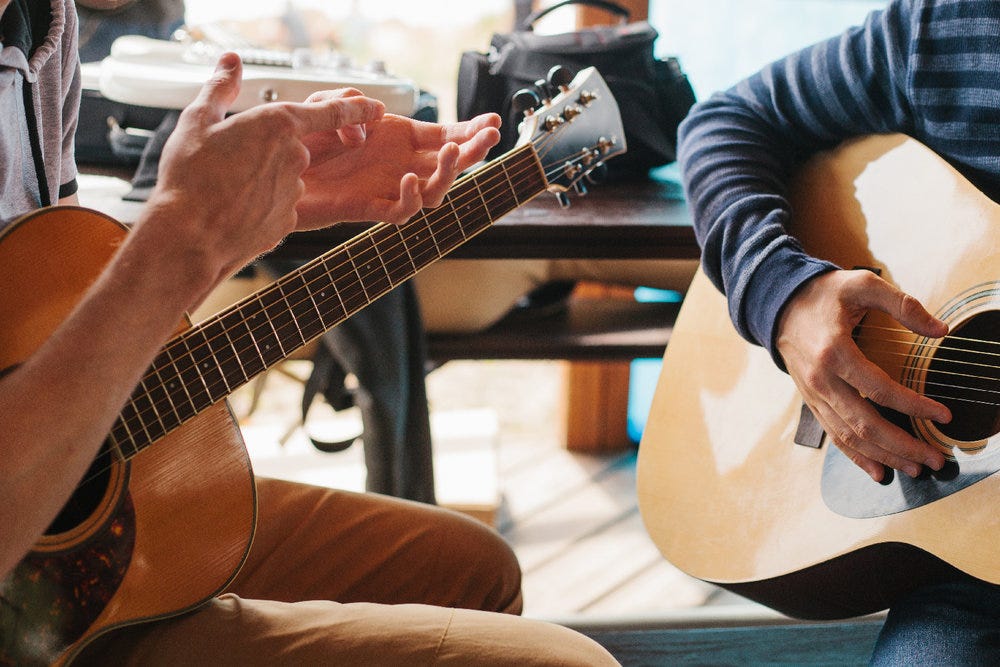When I started teaching guitar lessons in early 1996, I was charging around $20-25/hour to go over to nearby neighbors in my apartment complex or over to a friends house to show them how to play the guitar. At the time, I was working a part time job at the airport. Instructing guitar lessons was nothing more than a way for me to make some easy extra cas…
Keep reading with a 7-day free trial
Subscribe to SoundHole Guitar Lessons to keep reading this post and get 7 days of free access to the full post archives.



